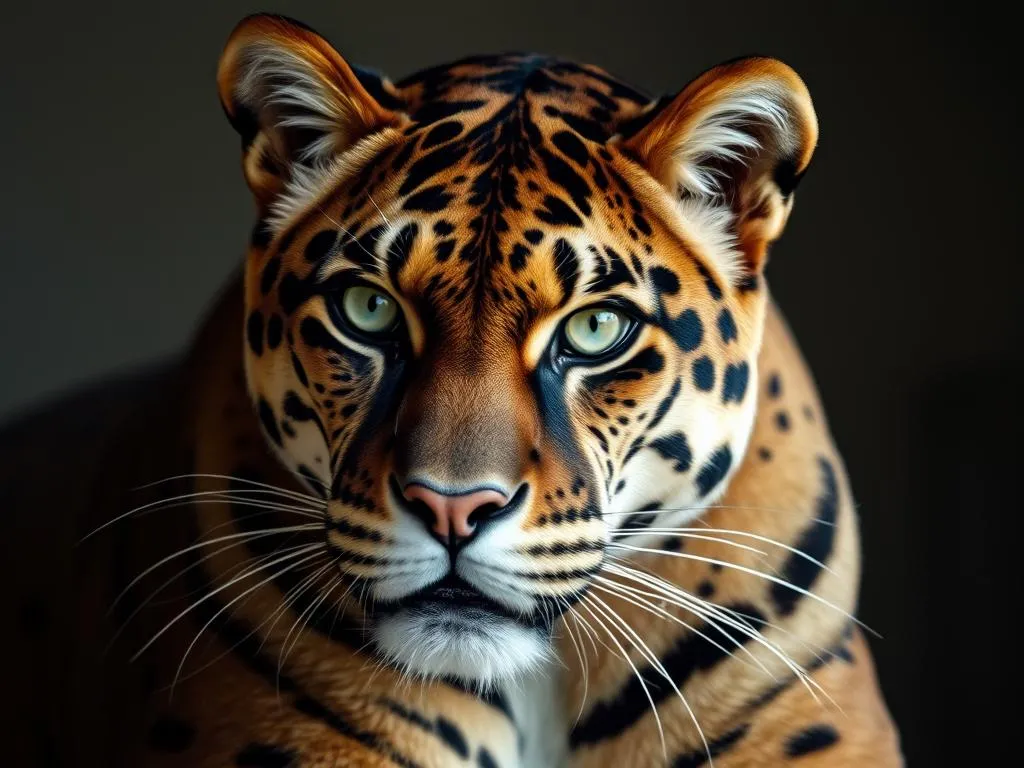
Introduction
Dog breeds play a significant role in our lives, influencing everything from the characteristics of our pets to their compatibility with our families and lifestyles. Understanding the unique traits of different breeds is essential for potential dog owners, as it helps in making informed decisions that align with their needs and preferences. Among the myriad of dog breeds, the Canis Panther stands out as a unique and fascinating breed. This article aims to provide comprehensive information about the Canis Panther and explore other notable dog breeds, ensuring that prospective dog owners are well-informed.
Understanding Dog Breeds
Definition of a Dog Breed
A dog breed is defined as a specific group of domesticated dogs with distinct genetic and behavioral traits. These traits often result from selective breeding practices, where dogs are bred for specific purposes, such as herding, hunting, or companionship. Each breed exhibits unique characteristics, including physical appearance, temperament, and health predispositions, which help potential owners to choose the right dog for their lifestyle.
The History of Dog Breeds
The history of dog breeds dates back thousands of years, with the domestication of wolves being one of the earliest instances. Through selective breeding, humans have developed various breeds tailored to specific tasks, such as herding livestock or guarding homes. Over time, these breeds evolved, leading to the diverse array of dog breeds we see today. The evolution of dog breeds is a testament to their adaptability and the strong bond formed between humans and dogs.
The Importance of Breed Characteristics
Understanding breed characteristics is crucial for prospective dog owners. These traits influence a dog’s behavior, temperament, and health. For example, some breeds are more energetic and require more exercise, while others may be more laid-back and suitable for apartment living. Responsible pet ownership involves selecting a breed that fits well within the owner’s lifestyle, ensuring a harmonious relationship between the dog and its family.
Overview of Canis Panther
What is Canis Panther?
The Canis Panther is a relatively new breed, developed in the late 20th century. It was created by crossing several breeds, including the American Pit Bull Terrier, Rottweiler, and Doberman Pinscher, to produce a dog that possesses the best traits of its ancestors. The Canis Panther is a large and powerful breed, known for its muscular build and athleticism.
In terms of physical characteristics, the Canis Panther typically weighs between 80 to 120 pounds and stands about 24 to 30 inches tall at the shoulder. Their coat is short and dense, often coming in solid black, brindle, or various shades of brown. This breed is known for its impressive appearance, which can be intimidating to some but is balanced by its loyalty and affection for family members.
Temperament and Behavior
The temperament of the Canis Panther is one of its most appealing traits. This breed is known for being intelligent, loyal, and protective of its family. They are often described as confident and strong-willed, requiring an experienced owner who can provide firm and consistent training. Early socialization is crucial to help them develop into well-rounded pets, as it enhances their ability to interact positively with other animals and people.
The Canis Panther is highly active and requires regular exercise. Daily walks, playtime, and mental stimulation are essential for keeping them happy and healthy. Without sufficient activity, they may become bored and exhibit destructive behaviors.
Health Considerations
Like all breeds, the Canis Panther is predisposed to certain health issues. Common concerns include hip dysplasia, heart problems, and skin conditions. Regular veterinary check-ups and a balanced diet can help mitigate some of these risks. The average lifespan of a Canis Panther is around 10 to 12 years, making it essential for owners to provide the appropriate care throughout their lives to ensure longevity and well-being.
Training and Socialization
Training a Canis Panther requires patience and consistency. Positive reinforcement methods work best, as this breed responds well to rewards-based training. It’s important to start training early and to expose them to various environments, sounds, and experiences. Socialization should also be a priority, as a well-socialized Canis Panther will be more adaptable and less likely to develop behavioral issues.
Comparisons with Other Popular Dog Breeds
Similar Breeds to Canis Panther
Several dog breeds share similarities with the Canis Panther, notably the American Pit Bull Terrier and Rottweiler. Both breeds are known for their strength and loyalty. However, they also come with their own unique challenges and characteristics.
-
American Pit Bull Terrier: Known for its affectionate nature, this breed is often misunderstood due to its powerful build. They require consistent training and socialization and are highly energetic.
-
Rottweiler: Similar in size and strength to the Canis Panther, Rottweilers are known for their protective instincts. They are intelligent and trainable but require strong leadership.
Unique Traits of Canis Panther Compared to Other Breeds
What sets the Canis Panther apart from other breeds is its balanced temperament and versatility. Unlike some breeds that may be overly aggressive or timid, the Canis Panther strikes a balance, making it suitable for families, singles, and active individuals alike. Its unique blend of breeds offers advantages such as enhanced intelligence and adaptability.
However, potential owners should also be aware of the disadvantages. The Canis Panther requires a dedicated owner who can provide proper training and socialization. Additionally, their size may not be suitable for all living situations, particularly small apartments without adequate outdoor space.
Choosing the Right Dog Breed
Factors to Consider When Selecting a Breed
Choosing the right dog breed involves several factors:
-
Lifestyle Compatibility: Consider your activity level and how much time you can dedicate to exercising your dog. Breeds like the Canis Panther require regular physical activity and mental stimulation.
-
Family Dynamics: If you have children or other pets, it’s essential to select a breed that is known for being good with kids and other animals. The Canis Panther can thrive in a family environment if properly socialized.
-
Time Commitment: Training and socialization take time. Consider whether you can commit to ongoing training and daily exercise.
The Role of Breed-Specific Legislation
Breed-specific legislation (BSL) can affect certain breeds, including the Canis Panther. These laws may impose restrictions or bans on specific breeds deemed dangerous. Understanding the regulations in your area is crucial for responsible ownership. Advocacy for responsible pet ownership and community education about breed characteristics can help combat negative perceptions associated with certain breeds.
Caring for Your Dog
General Care Requirements
Caring for a dog involves several key components:
-
Nutrition: Providing a balanced diet is essential for your dog’s overall health. Consult your veterinarian for recommendations tailored to your dog’s age, weight, and activity level.
-
Grooming: Regular grooming helps maintain your dog’s coat and skin health. For the Canis Panther, a short coat requires minimal grooming but still benefits from regular brushing.
-
Health Checkups: Routine veterinary visits are crucial for preventive care. Vaccinations, dental care, and parasite control should be part of your dog’s health regimen.
Breed-Specific Care for Canis Panther
When it comes to the Canis Panther, special considerations include:
-
Diet: Due to their size and activity level, a high-quality diet formulated for large breeds is important to prevent obesity and related health issues.
-
Training: The Canis Panther thrives on mental challenges, so incorporating obedience training and interactive toys can keep them engaged.
-
Health Care: Regular check-ups to monitor for common health issues specific to the breed can help catch problems early.
Resources for Dog Owners
Finding a Reputable Breeder
Finding a responsible breeder is crucial when looking for a Canis Panther. Look for breeders who prioritize the health and temperament of their dogs, provide health clearances, and encourage you to meet the puppy’s parents. Ethical breeding practices ensure that puppies are well-socialized and healthy.
Training Resources
Investing in training is essential for any dog breed. Seek out local training programs or classes that focus on positive reinforcement. Online resources and books can also provide valuable information on training techniques and socialization.
Community and Support Groups
Joining breed-specific clubs or online communities can offer support and resources. These groups can provide a platform for sharing experiences, advice, and social opportunities for your dog.
Conclusion
Understanding dog breeds, particularly the Canis Panther, is vital for potential dog owners. By recognizing the unique characteristics and needs of different breeds, individuals can make informed decisions that ensure a happy and healthy relationship with their pets. The joys and responsibilities of dog ownership are immense, and thorough research is the first step toward a fulfilling companionship. Whether you choose a Canis Panther or another breed, the commitment to care, training, and love will undoubtedly lead to a rewarding experience.









